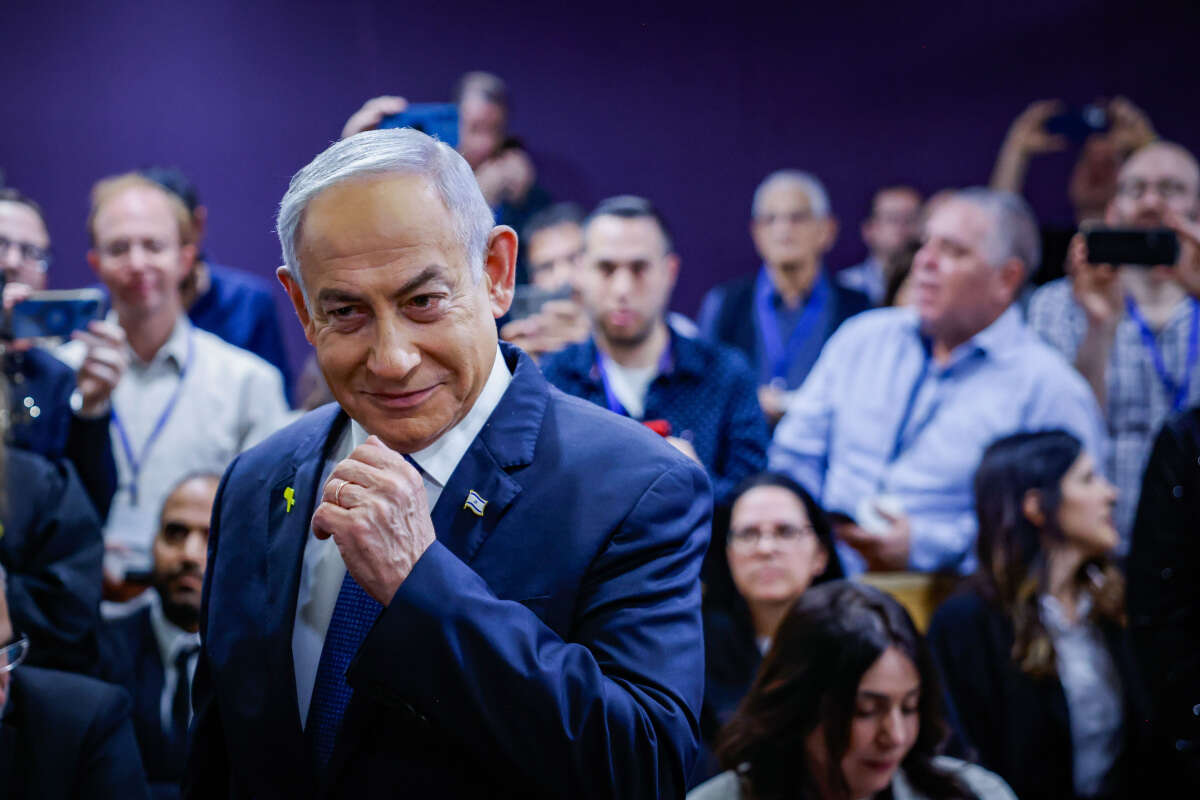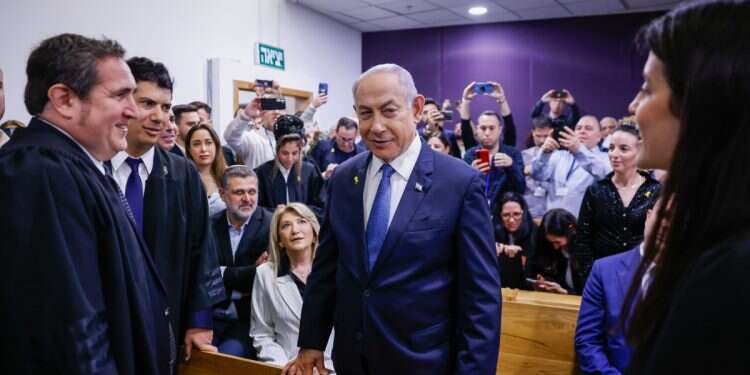In dramatic testimony Tuesday in his corruption trial, Prime Minister Benjamin Netanyahu sought to demonstrate that he routinely signs large batches of documents without detailed review, presenting this as evidence he couldn't have knowingly participated in an alleged quid pro quo involving the Walla news site.
"This process undermines the very essence of the [corruption] claim," Netanyahu testified, after showing the court a video he recorded several days earlier of himself signing documents brought by Cabinet Secretary Tzachi Braverman.
Video: PM Netanyahu released this video showing him signing documents in batches, as evidence in court / Credit: PMO
Netanyahu is standing trial in three corruption cases. In Case 4000, considered the most serious, prosecutors claim he provided regulatory benefits to Shaul Elovitch, the former owner of Walla's parent company Bezeq, in exchange for favorable coverage on the news site. In Case 2000, he is accused of discussing a legislation deal for favorable coverage with Yedioth Ahronoth publisher Arnon Mozes in exchange for weakening its rival newspaper, Israel Hayom. In Case 1000, he faces charges of receiving expensive gifts from wealthy businessmen in exchange for political favors.

On Tuesday, focusing on Case 4000, Netanyahu pointed to regulatory approvals benefiting Bezeq that he signed before his December 2012 dinner with Elovitch, which prosecutors claim initiated their alleged quid pro quo relationship. "Two major regulatory benefits were given to Elovitch that I signed as prime minister, without understanding, without risk, without unusual response, without favorable coverage, before the dinner – without anything," he testified.
Netanyahu emphasized that this was standard procedure: "What I'm describing to you – I would suggest bringing several ministers, and they would all tell you that this is how they sign. It happens in cabinet meetings. It happens in the Knesset when they bring you a package. And it happens in the ministry,y too."
Regarding his broader motivations for media involvement, Netanyahu argued, "I'm here for policy. Not here for personal pleasures. What does that matter? To sit in the chair? What value is there in that? There are more comfortable chairs in the world."
He expressed shock that his media diversity efforts were being criminalized, "Your honors, I was stunned when they asked me about this in investigations – I told them, 'Are you serious? What are you talking about? This? This is in the indictment? The most basic democratic thing? The duty of leaders is to diversify different markets; this is seen as criminal?'"
Netanyahu explained what he thought about the economic market; he thought about the market of opinions. "If there's a free market, you succeed in reaching different results than with one supplier," he said. He emphasized repeatedly that "it's not about a personal matter. It's about an ideological matter."




